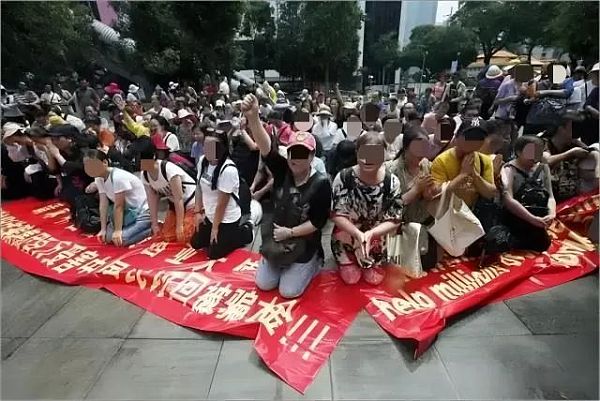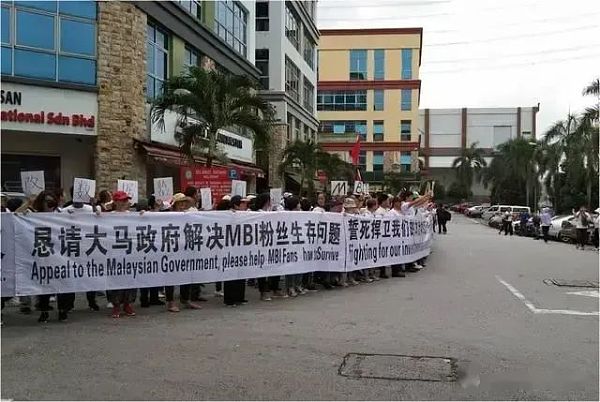Author: Lawyer Liu Zhengyao, Source: Mankiw Blockchain Law
61,000 Bitcoins are not all the property involved in the case. The case involving Jian Wen (hereinafter referred to as "Jian Wen") and her employer Qian Zhimin urgently requires us to think about how to conduct effective international judicial cooperation in virtual currency criminal cases.
01 Case Result
According to the information available online, on March 18 this year, the British court ruled that Jian Wen, a Chinese-British woman, was guilty of participating in the crime of money laundering and will announce the specific sentence on May 10.
Jian Wen was born and raised in China. She married her British husband Marcus Barraclough and came to the UK. Later, the two divorced. After the divorce, Jian Wen raised her son alone and worked in a Chinese takeaway restaurant in London. Her part-time job included trading in virtual currencies. When Jian Wen saw a message for recruiting a housekeeper on WeChat, the gears of fate began to turn. Jian Wen applied for the position of housekeeper, met her future employer Qian Zhimin (alias zhangyadi) and was eventually hired.
According to the information disclosed on the Internet, Qian Zhimin (nickname Huahua) is actually the actual controller of Tianjin Lantian Ge Rui Electronic Technology Co., Ltd. Qian Zhimin illegally raised funds through the aforementioned company in mainland China, then ran away with the money (probably exchanged the funds for Bitcoin), and finally settled in the UK, but because of his many illnesses and language differences, he hired Jian Wen in the UK.
After that, Jian Wen did live a "fairy-like" life: luxury houses, luxury cars, jewelry, etc., but in the end, because she (or helped Qian Zhimin) buy a luxury house, she was targeted by the British police because she could not prove the legal source of the purchase funds. Liu Lu will not write the specific details afterwards. The final result was that Qian Zhimin fled due to legal risks, and Jian Wen was convicted of money laundering by the British court. The final sentencing will not be announced until next month.
02 About Tianjin Lantian Green Electronic Technology Co., Ltd.
Before the news in the UK came out, Lawyer Liu did not pay attention to any situation of Tianjin Lantian Green Electronic Technology Co., Ltd. (hereinafter referred to as "Lantian Green Company"). The previous ten years and even the first three or four years were the peak years for illegal fund-raising cases. The collapse of Lantian Green Company in 2017 may not be so eye-catching.
We checked the basic information of Lantian Green Company and found that it is still in existence, but it has been included in various blacklists.

By searching the Judgment Documents Network, there are 12 criminal judgments on the illegal fund-raising crimes of Blue Sky Green Rui Company, and the judgment courts include Luoshan County Court in Henan Province, Hua County Court in Henan Province, Shangyu District Court in Shaoxing City, Haigang District Court in Qinhuangdao City, Xinchang County Court in Zhejiang Province, Chongming District Court in Shanghai, Gongzhuling City Court in Jilin Province, etc. Among them, the more interesting thing is that in the judgment of Wan Moumou on the crime of occupational embezzlement and misappropriation of funds by the Chuanying District Court of Jilin City ((2017) Ji 0204 Criminal First Instance No. 338), Blue Sky Green Rui Company also issued a "Situation Statement" as a witness, proving that Wan Moumou invested more than 1.8 million yuan in the purchase of financial products in its company.
The judgment documents published online are basically the sentences of Blue Sky Green Rui's grassroots salesmen, and there are very few documents on the sentences of the company's middle and senior leaders, and it is impossible to accurately know the amount of Blue Sky Green Rui's illegal funds. However, there is a possibility that the bitcoins purchased when Qian Zhimin fled in 2017 had a significant appreciation when the British money laundering crime occurred in 2023.
03 Possibility of Chinese investors to defend their rights
According to the Financial Times, how to deal with the 61,000 bitcoins seized in this case? The British Royal Prosecution Service has filed a recovery procedure with the court. Once these assets have no rights holders to claim their rights (similar to China's third-party execution objection procedure?), they may be confiscated by the UK. According to relevant British regulations, half of them will go to the UK Home Office and half to the British police (similar to the public security case handling funds?).
Therefore, the voices of the victims of the illegal fundraising case of Blue Sky Green in China are particularly important. It is necessary to let the British government, judicial organs, and law enforcement agencies know that the 61,000 bitcoins seized are the legal property of Chinese citizens.
So, how can the victims of the illegal fund-raising case of BlueSky Green in China protect their rights? Lawyer Liu has two ideas from the legal perspective:
First, in international judicial cooperation, China and the UK are both members of the Financial Action Task Force on Money Laundering (FATF) (China joined in 2007). In the Mutual legal assistance and extradition chapter of the FATF's "40 Recommendations (2003)", Recommendation 36 clearly suggests: "Countries should rapidly, constructively and effectively provide the widest possible range of mutual legal assistance in relation to money laundering and terrorist financing investigations, prosecutions, and related proceedings. In particular, countries should:... c) Not refuse to execute a request for mutual legal assistance on the sole ground that the offence is also considered to involve fiscal matters. d) Not refuse to execute a request for mutual legal assistance on the grounds that laws require financial institutions to maintain secrecy or Confidentiality.”
Simply translated, it means: In international judicial assistance and extradition for anti-money laundering, (it is recommended) that one party should not refuse to perform judicial assistance on the grounds that the criminal act involves financial affairs, confidentiality of financial institutions, etc.
Second, in domestic judicial practice, my country's "International Criminal Judicial Assistance Law" clearly stipulates that when the case-handling agency requests criminal judicial assistance from a foreign country, it should submit a judicial assistance request to the target country through the Ministry of Foreign Affairs after review and approval by its competent authority in accordance with the provisions of the criminal judicial assistance treaty.
Coincidentally, on August 29, 2015, the Standing Committee of the National People's Congress of my country made a decision to approve the "Treaty on Criminal Judicial Assistance between the People's Republic of China and the United Kingdom of Great Britain and Northern Ireland". Therefore, my country's judicial organs can fully communicate with the relevant British departments through the Ministry of Foreign Affairs on the return of the stolen money in this case.
Although both international judicial assistance and domestic judicial practice make it reasonable and legal for my country and Chinese citizens to claim the return of the funds involved in the case from the UK and relevant UK departments (law enforcement, judicial, etc.), what Lawyer Liu wants to say is that the reality is often complicated and cannot be solved by a few international treaties and domestic laws. There are also many complex factors behind it, which cannot be determined or influenced by one or a few people/groups/organizations. The most recent case is the fraud (or pyramid scheme) case of Zhang Yufa, the founder of Malaysia MBI in 2019, which caused a large number of domestic victims to "defend their rights" at the gate of the Chinese Embassy in Malaysia (although they were kneeling to defend their rights). This method is both reasonable and extreme, and behind the black humor are endless tears.


Finally, back to the question in the title of the article, Lawyer Liu’s answer is: It is possible for Chinese victims to recover their losses, but it requires the Chinese judicial authorities to be strong enough.
 JinseFinance
JinseFinance
 JinseFinance
JinseFinance JinseFinance
JinseFinance Cheng Yuan
Cheng Yuan Edmund
Edmund JinseFinance
JinseFinance JinseFinance
JinseFinance Bitcoinworld
Bitcoinworld fx168news
fx168news fx168news
fx168news fx168news
fx168news